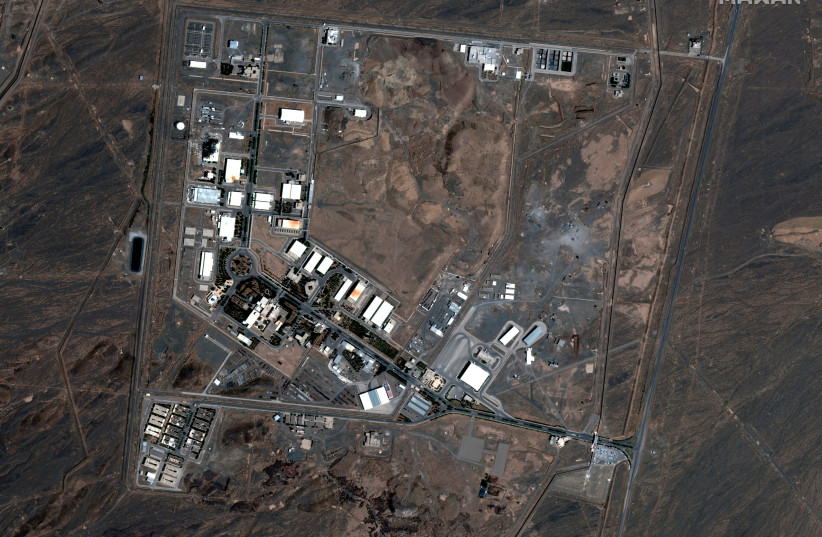Tehran may soon regain the ability to sneak out a weapon.
YONAH JEREMY BOB

The IAEA’s and other media reports’ confirmation on Tuesday and Wednesday of Iran building a new centrifuge facility in the mountains around Natanz start a new dangerous chapter in the nuclear standoff.
The new facility is Iran’s response to attempts to block one of its potential paths to leapfrog to a nuclear weapon faster.
Building it underground will also make it much harder to strike, especially considering the ongoing debates about whether Israel has the ability to reach such a facility without US bunker-buster bombs that penetrate deep underground.
All of this is a response to the dozen or so explosions of Iranian facilities this summer, especially the one on July 2.
On July 2, the Islamic Republic’s primary advanced centrifuge facility for enriching uranium at Natanz went up in flames.
The Jerusalem Post received validation of foreign reports of Israeli involvement, though Iranian dissidents may have been on the frontlines and others may also have been involved.
The Post also reported that both government and non-government sources said the destruction of the facility would set Tehran back one to two years in its plans for advanced centrifuges.
Only in 2020 has Iran finally mastered IR-4 and IR-6 centrifuges, which can enrich uranium at much higher rates than the IR-1 and IR-2ms, which have made up nearly all of its around 20,000 centrifuges for more than a decade.
Until July 2, there was concern that Iran could sneak out to a nuclear program by using advanced centrifuges, even in smaller numbers, to weaponize uranium so fast that the US, Israel and others would not be able to prevent it either diplomatically or militarily.
Even without the advanced centrifuges, the ayatollahs currently have enough low enriched uranium for between two and three nuclear bombs, and they may be only three to four months away from a weapon, if they decided to try to start weaponizing that uranium with their older and slower centrifuges.
Iran advertised months ago that it would rebuild the destroyed Natanz facility.
Now those theoretical plans are moving forward and getting noticed.
While building the new facility will take time, especially underground, Israel, the US and others must already start to adjust to the possibility that in a year or a few years, the Islamic Republic may regain the ability to sneak out to a nuclear weapon and that hitting the facility will have become much harder.
As with every aspect of the rivalry with Tehran, they adapt with the best, and they know how to modify tactics to reach long-term goals.
All eyes will need to be on this facility going forward.
Content retrieved from: https://www.jpost.com/middle-east/iran-news/beware-of-irans-underground-nuclear-facility-analysis-647210.